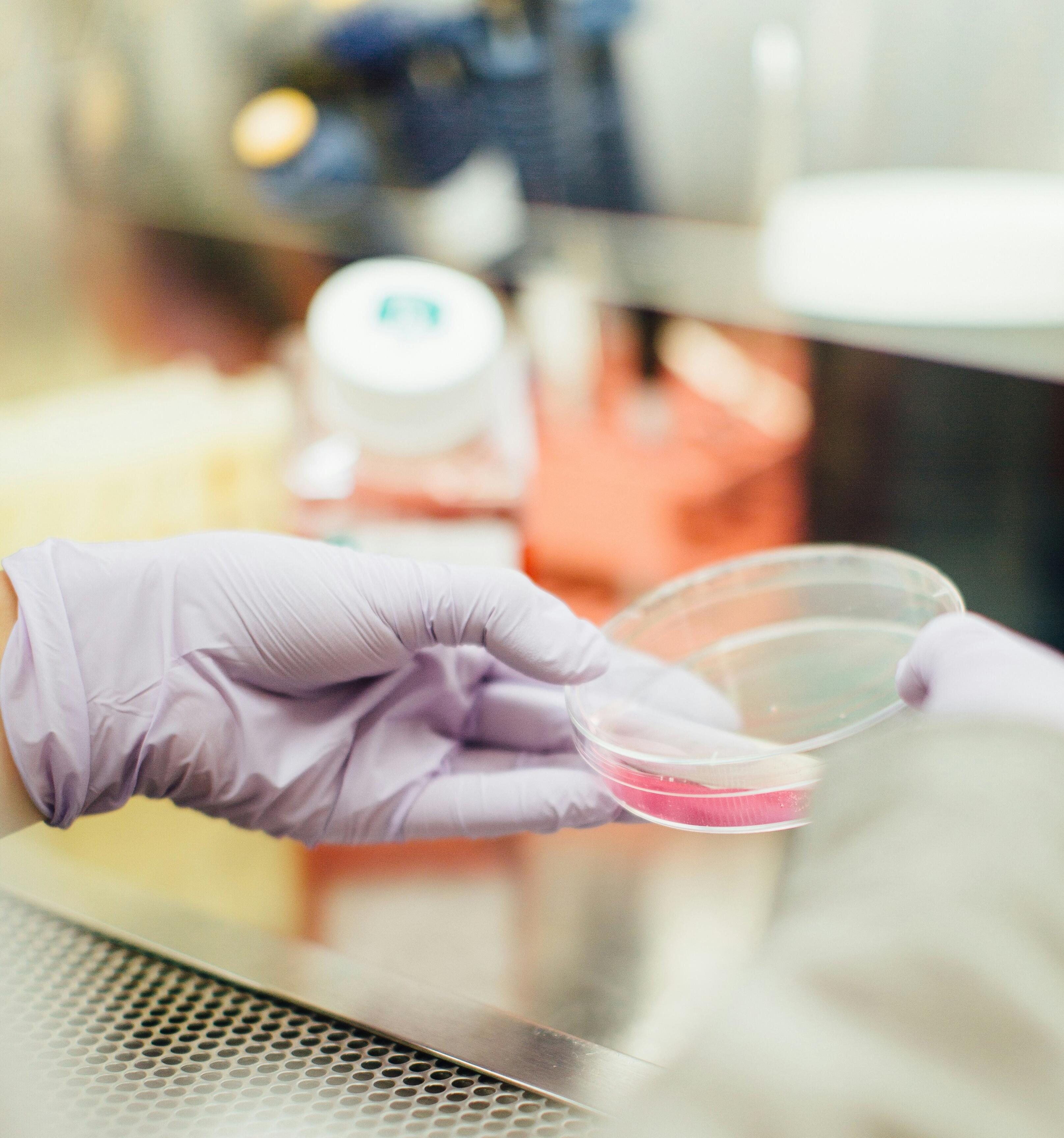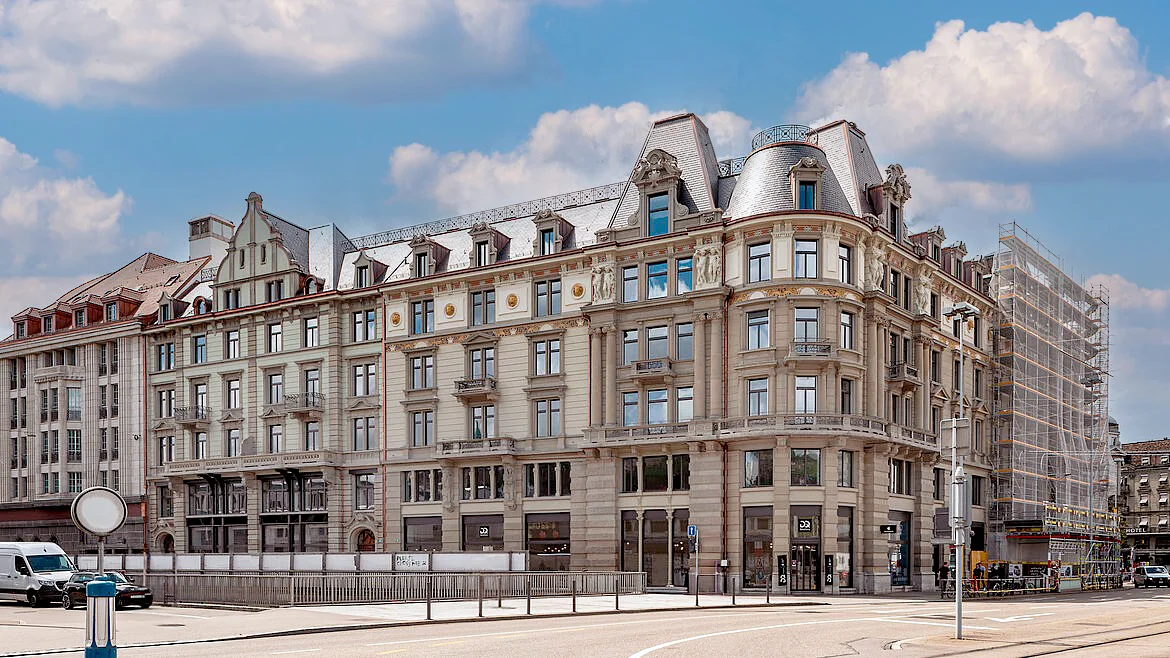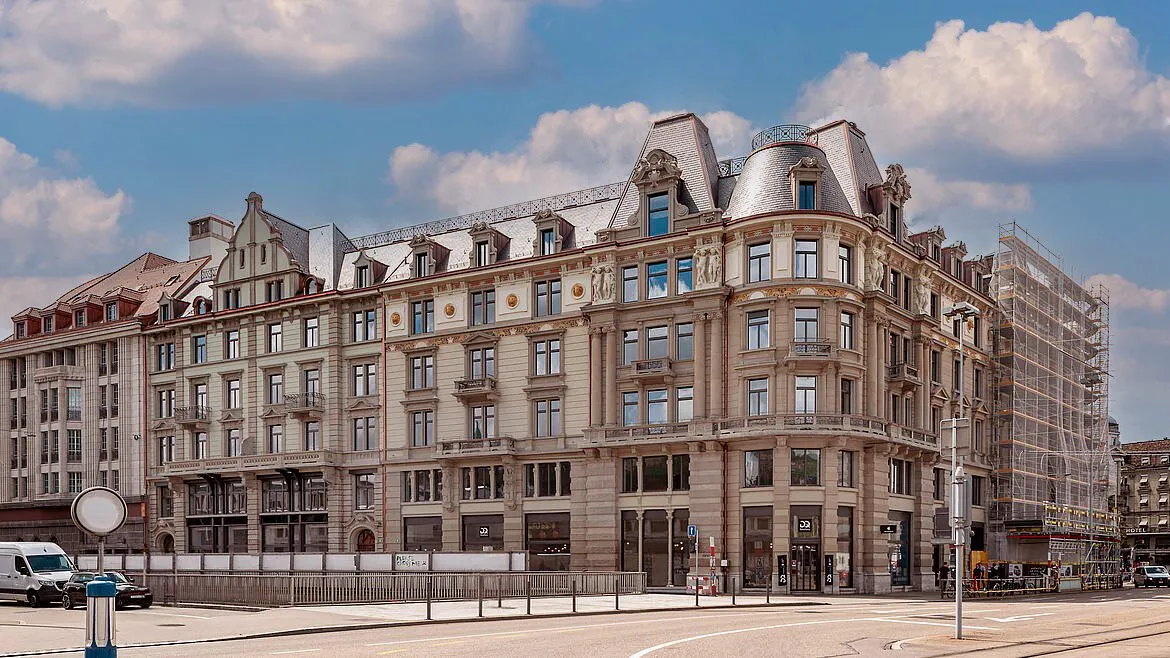5 Regions in Switzerland Impacting the Life Sciences Industry
03 Dec, 202410 minutesThe global life science industry has fueled transformative advancements across key sectors s...

The global life science industry has fueled transformative advancements across key sectors such as healthcare, agriculture, biotechnology, and environmental science, playing a crucial role in shaping humanity and our world. Talented professionals are drawn to the sector because they can contribute to progress and innovation for the benefit of current and future generations.
Switzerland's influence on the advancement of the life sciences industry is growing. This guide deep-dives into the key Swiss areas and hubs that are impacting this vital sector.
1. Basel
With over 700 life sciences companies, the Basel region in Switzerland has a significant influence in the global biopharmaceutical and medtech industries. There are several reasons why the life sciences industry is flourishing in Basel.
Location
Geographically, Basel can attract top talent from more than one country to the life sciences industry. It borders France and Germany, and with its accessible transport links, commuting to and working in Basel is an attractive proposition.
Switzerland is multilingual, with many natives speaking German, French, Italian, and Romansh. This type of diverse workforce attracts workers from neighbouring countries and overseas.
Institutions
Whilst having international appeal to those with life sciences experience, Basel has a wealth of academic institutions producing new generations ready to enter the life sciences industry. Examples of its world-renowned schooling include the University of Basel and many of its internal departments.
University of Basel
Basel has over 32,500 life sciences professionals, many of whom have graduated from or are affiliated with the prestigious university. Over 700 life sciences companies in the region regularly rely upon this talent pool.
The MSc Physics of Life program highlights the advanced education in life sciences offered by the University of Basel. This subject combines physical sciences, mathematics, and engineering with biological research. Its objective is to equip students to uncover and develop life science discoveries through experimental and theoretical training.
Furthermore, the University of Basel has departments dedicated to life sciences:
- University Hospital Basel: A driving force for advancements in immunology and infectious diseases.
- Biozentrum: Famed for its groundbreaking research in Biochemistry and Molecular Biology.
- ETH Zürich: Department of Biosystems Science and Engineering: Aims to understand, design, and program complex biological systems from the nanoscale to entire organisms.
The University of Basel is at the heart of the region’s life sciences research. Excluding Roche and Novartis, it accounts for 48% of all collaborations. Its Innovation Office increased the number of spinouts from one to three to between 10 and 15 annually. These spinouts join initiatives like BaseLaunch, which provides incubator services and offers financial support. Since 2018, BaseLaunch has supported 22 life sciences companies and generated over $600 million.
Life Sciences Companies
As mentioned, Basel is home to hundreds of life science companies, including major organisations like Novartis and Roche. It also boasts a plethora of startups and small and medium enterprises.
Novartis
- Founded in 1996 after the merger of Sandoz and Ciba-Geigy. Their purpose is to reimagine medicine to improve and extend people’s lives.’
- They develop and manufacture vital medicines which reach 250 million people worldwide. These include:
- Kisqali - Oral treatment for breast cancer.
- Tasigna - Oral treatment for a type of chronic myeloid leukaemia.
- Xolair - Injectable medicine for certain immunological and respiratory conditions, including severe allergic asthma.
- Cosentyx - Injectable treatment for inflammatory conditions.
- In 2023, it generated roughly $45.5 billion in revenue.
- As of 2023, Novartis had 76,057 full-time employees worldwide.
- As well as Switzerland, they have locations in France, Slovenia, Austria, Italy, the US, India, and China.
Roche
- Established over 125 years ago by Fritz Hoffman-La Roche. It was known as a producer of various vitamin preparations and derivatives in its early days. It has grown into one of the world's biggest biotech companies as a leading provider of in-vitro diagnostics and an international supplier of transformative solutions across major disease areas.
- Examples of the medicines developed by Roche, include:
- Actema/RoActemra: Used for the treatment of rheumatoid arthritis.
- Herceptin: The first HER2-targeted therapy for breast cancer.
- Mircera: Stimulates the growth of red blood cells.
- Generated 70 billion dollars in 2023.
- As of May 2024, Roche had nearly 104,000 employees worldwide.
2. Greater Zurich
The Greater Zurich region has long established itself as a global leader in the life sciences industry for a number of reasons:
- Academically Strong: ETH Zurich and the University of Zurich consistently produce life sciences talent.
- Businesses Thrive: A stable economy coupled with low taxes makes Greater Zurich an attractive place for businesses.
- A Haven For Startups: Due to the economic benefits and local and prestigious educational institutions, biotech and medtech companies are regularly emerging in the area.
- Skilled Workforce: Again, thanks in part to its academic institutions, Zurich has an effective and experienced workforce of innovative and talented professionals.
Here are some of the main life sciences hubs in Greater Zurich:
Bio-Technopark Schlieren-Zürich
Situated near the Swiss Federal Institute of Technology, Bio-Technopark Schlieren-Zürich has grown into a major science park over the last two decades. It provides over 90,000 square metres of laboratory, production, and office space, making it a hotbed for over 50 life sciences companies and 30 academic institutions. Bio-Technopark has significant features and a positive impact:
- Diverse Businesses: Houses a mix of startups, established life sciences companies, and academic institutions.
- Infrastructure: State-of-the-art laboratories and cutting-edge equipment.
- Supports Entrepreneurs: The park offers advice and networking opportunities to startups.
- Excellent Research: A combination of academic institutions and research groups leads to advancements in life sciences.
- Economic Benefits: Bio-Technopark bolsters the Swiss economy by creating jobs and generating revenue.
Balgrist Campus
The Balgrist Campus is one of many significant life sciences hubs in Zurich. This one leads the way in musculoskeletal research. At present, 250 researchers are at the forefront of developing medicine for musculoskeletal-related diseases.
Whilst leading the way with musculoskeletal research, the Balgrist Campus has world-class researchers from a range of life sciences fields:
- Orthopaedics.
- Paraplegiology.
- Biomechanics.
- Paediatrics.
- Rheumatology.
- Robotics.
Several outstanding facilities exist, such as the Swiss Center for Musculoskeletal Imaging, the Swiss Center for Clinical Movement Analysis, and the Swiss Center for Musculoskeletal Biobanking. At the Balgrist Campus, research is more than just research. It builds effective partnerships with private life sciences companies, which leads to research materialising into practical applications.
Health Tech Cluster Switzerland (HTCS)
Located in the canton of Schwyz, Health Tech Cluster Switzerland connects stakeholders and life sciences companies from a host of life sciences fields. Membership fees and donations fund it, and it provides a space for a collaborative approach to creating innovative and sustainable life sciences solutions.
The key roles and objectives are as follows:
- Networking: HTCS is the main platform within the Swiss life sciences community. It allows connections to be formed, knowledge to be shared, and business opportunities to be presented.
- Insights: Industry experts can share best practices and trends, ensuring members are updated with the latest developments.
- Innovation: The connection of stakeholders coupled with shared knowledge results in innovative methods that address the needs of the life sciences industry.
- Promotion: HTCS showcases Switzerland as a world leader in health technology.
Its impact has been far-reaching. HTCS contributes to Switzerland’s economic growth, healthcare has improved, industry talent is nurtured, and Switzerland is viewed as a global leader in life sciences.

3. Lemanic Region
Also known as the Lake Geneva region, the Lemanic Region is often referred to as the ‘health valley’ due to its multitude of biotechnology and medical technology companies.
Biopôle Lausanne
Established by the public authorities of the Canton of Vaud in 2004, this campus has become a prominent life sciences hub in Switzerland. Here are some of its features:
- 1.4 million square feet of office and laboratory space.
- Life science incubator (StartLab), private labs (SuperLab), and a Digital Health Hub.
- This hub has over 145 life sciences companies, including CSL Behring and Ferring, as well as 25 research groups.
Biopôle is unique because academic institutions and companies collaborate on many projects. This engagement is made possible through events organised through Biopôle. The campus also supports new life sciences companies by offering resources for their transition from academia to business.
This hub’s contributions have led to advancements in oncology, immunology, and personalised medicine. Biopôle is also involved in projects that develop treatments for colon cancer and DNA staining for imaging living cells. Due to its stellar reputation and location, Biopôle continues to attract top talent and shape the life sciences industry.
The BioAlps Association
Founded in 2003, the BioAlps Association is supported by seven cantons, the Swiss State Secretariat for Economic Affairs, and 15 academic institutions. It accounts for over 1,350 life sciences organisations in sectors such as:
- Biotech.
- Medtech.
- Pharmaceuticals.
- Nutrition.
- e-Health.
BioAlps strives to promote the performance of the life sciences industry in the Lemanic region by developing a comprehensive network with area expertise. The association supports events in Switzerland and internationally, which encourages networking and business opportunities.
By supporting Swiss life sciences companies at international conferences like the Bio International Conference, Swiss organisations can engage with international entities and build partnerships, further cementing Switzerland as a leader in the life sciences industry.
4. Zug Region
This region contributes significantly to Switzerland’s reputation as a global force in the life sciences industry. A number of the biggest pharmaceutical and biotech companies organisations are based here:
- Biogen.
- Johnson & Johnson.
- Amgen.
- AstraZeneca.
- Bristol-Myers Squibb.
Zug hosts approximately 250 life sciences companies, employing around 6,200 people—about 7% of the region’s workforce. This workforce is divided between pharmaceuticals and biotech, with 3,000 in pharma and 3,200 in biotech.
Life sciences significantly impact Zug’s economy, with science-related products representing 50% of the region’s total exports. Furthermore, Zug's appeal extends globally, as evidenced by the presence of around 60 US biotech firms drawn to the area.
5. Saint Gallen
Innovation and research make the St. Gallen region a life sciences leader in Switzerland and the world. The hubs in Saint Gallen emphasise research and development, which allows Switzerland to remain competitive in the life sciences sector.
Health Innovation Hub
Operating mostly from the Switzerland Innovation Park East, this hub’s main target is to develop innovative solutions in the healthcare sector. To do this, it encourages collaboration between research, industry, and healthcare professionals.
Should entrepreneurs have initiatives to improve healthcare, the hub will support them with packages. It also hosts events and workshops highlighting healthcare needs and possible solutions. For example, the hub showcases innovative products like the cardio belt, which uses advanced sensors to monitor one's health.
SCHOTT St. Gallen
SCHOTT is a leader in pharmaceutical packaging, manufacturing glass ceramics for syringes and cartridges, as well as an international hub for global research. Its significance in Switzerland’s life sciences sector is clear, as it:
- Serves as a global centre for research and technology, contributing to advancements in drug delivery systems.
- The original company was founded in 1930 and is now one of 16 pharmaceutical systems sites worldwide.
- Employs over 660 people, establishing itself as a major regional employer.
- 90% of the world’s pharmaceutical companies are supplied by them.
Biosynth
Given its location near Lake Constance, Biosynth provides essential raw materials, manufacturing, and diagnostic services throughout Switzerland and worldwide. This hub manufactures and sources a range of chemical and biochemical products, including:
- Carbohydrates.
- Nucleosides.
- Enzyme substrates.
- Active pharmaceutical ingredients.
- Controlled substances.
The company is known for its ability to create complex chemicals, peptides, and various scales of key biologics. High quality is assured as the hub operates ISO 9001 and GMP-certified facilities.
Biosynth regularly participates in international events related to pharmaceuticals and life sciences, such as the World Vaccine Congress and the Festival of Biologics. This level of involvement on the world stage demonstrates Switzerland’s leading role and its impact on the life sciences industry.
Final Word: 5 Areas Impacting Life Sciences in Switzerland
Switzerland's life sciences sector benefits from the strengths of several key regions. Basel excels with its extensive network of life sciences companies and world-class institutions, positioning itself as a central hub for biopharmaceuticals and medtech. Greater Zurich combines strong academic institutions with a supportive business environment, fostering growth and innovation in the industry.
The Zug region contributes significantly to the sector's economic impact and attracts international interest, while Saint Gallen focuses on research and development, enhancing Switzerland's role in life sciences. These regions demonstrate Switzerland's significant and well-rounded contribution to the global life sciences field.
Results-driven Life Sciences Recruitment Solutions
Our people-centric approach allows us to source high-quality talent in the life sciences industry to help elevate your business. Whether you’re a startup or a multinational company, you can trust our talented life sciences recruitment team to drive your growth strategy.
Ready to transform your Business? Contact us today.



